We’ve all heard the term coach. Whether we think of an athletic coach, or a performing arts coach, or a life coach. We all have preconceived notions of what coaching is.
This can make our job as instructional coaches even more complicated!
Because as coaches, we fulfill many roles, and only one of them is actually coaching.
In today’s post, I’m going to share the difference between the different stances in the Continuum of Practice, as defined by Laura Lipton and Bruce Wellman. This continuum takes us from consulting to collaborating to coaching.
This is a whole module inside The Coach Certificate and Mentorship Program, and often a huge “aha” moment for our students. Not everything we do as coaches, is coaching!
This post will help you get an idea of the different types of approaches, conversational strategies, questions that you might ask in your coaching conversations.
The Continuum of Practice for Coaches and Mentors comes from the book, Mentoring Matters by Laura Lipton and Bruce Wellman. If you haven’t watched/listened it yet, please make time to listen to my conversation with Laura on the #coachbetter podcast, where we talk even more about this topic!
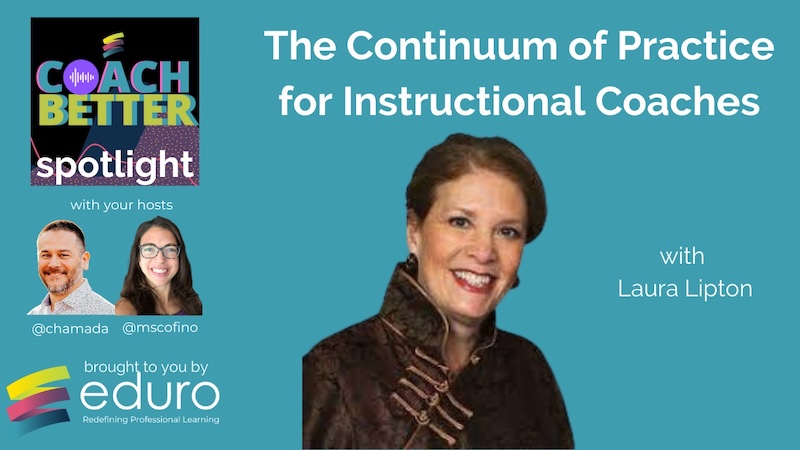
Along with the Continuum of Practice, there are many different kinds of coaching, including
- instructional coaching,
- peer coaching,
- cognitive coaching,
- student centered coaching
- mentoring
And, there’s specific processes within these different types of coaching, like the impact cycle.
We explore ALL of these different coaching models within The Coach Certificate and Mentorship Program! So you get resources from all of the big concepts within coaching. Which means, you’ll walk away having a solid understanding of which coaching approach and which coaching model will work best for you and your school.
All of those coaching models use different types of approaches based on the teacher’s needs. So all of those coaching models will have opportunities for the coach to be a consultant, to be a collaborator, to be a coach in different coaching conversations so you can take these three big themes and apply them no matter what coaching model you use.
As coaches, we need to be able to identify and move between these key roles within all of our conversations. There might be a conversation where we start out coaching and end up transitioning to consulting or to collaboration or vice versa. Today I want to give you a foundational understanding of what these three roles of consultant collaborator and coach kind of look like, so you can tell the difference when you’re having your coaching conversations.
Let’s take a closer look at these 3 stances…
1: Consulting
This is when you, as a coach are a consultant for the teacher. When a teacher needs specific information, advice, or concrete alternatives or ideas to help them move forward. At this point in the conversation, t’s clear they don’t have the answer already within them. It may be a skill gap as Elena Aguilar mentions in Mind the Gap.
It’s important to remember that you can’t pull out of someone that doesn’t already exist, which is something that Art Costa says for Cognitive Coaching (shared eloquently here in this #coachbetter episode with Lynn Sawyer).
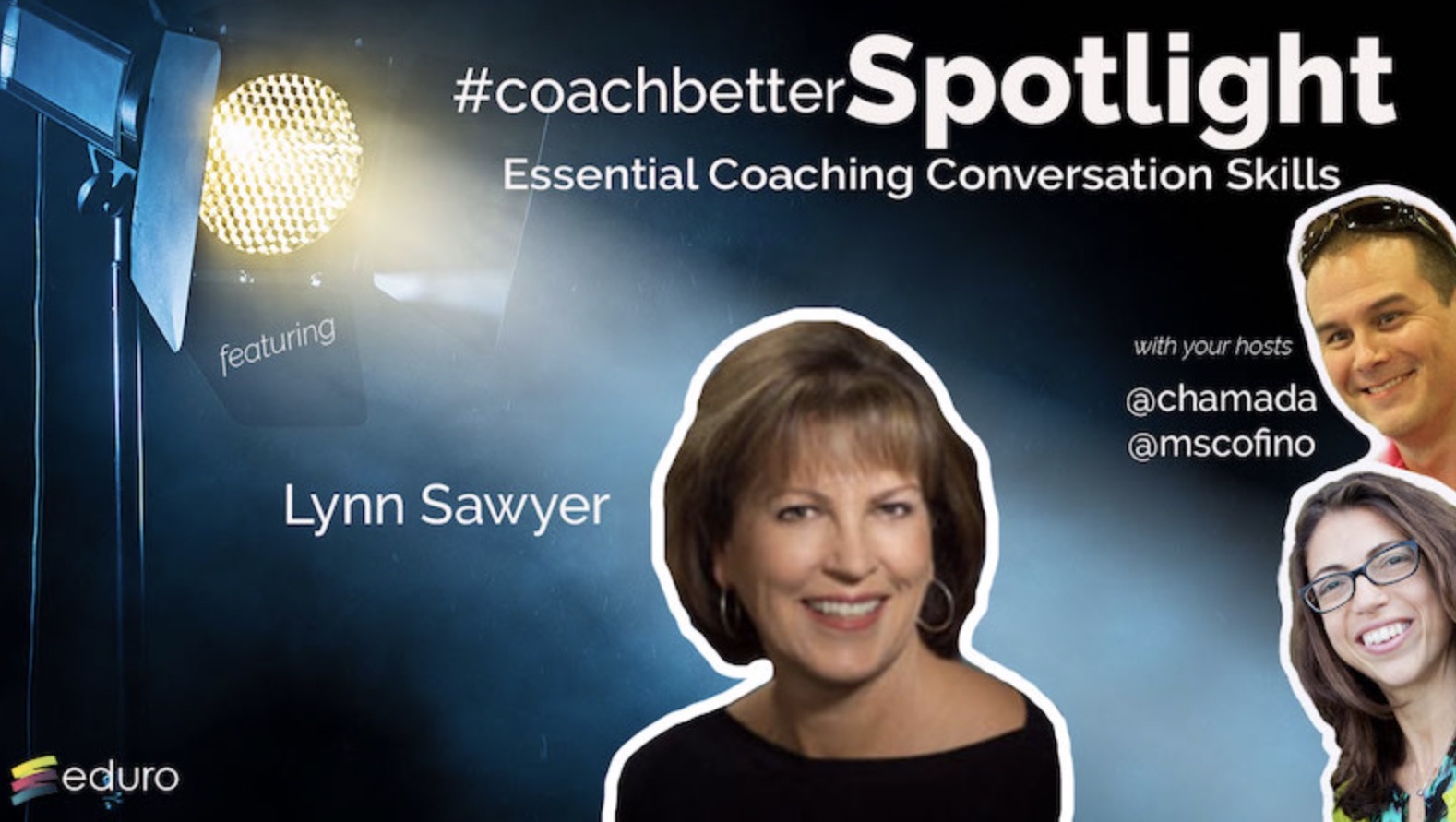
Sometimes there is a purpose to being a consultant because a teacher might need support in ways that they don’t already have access to themselves, which is likely why they’re coming to you.
It might also be useful to be a consultant if there’s a pressure for time or the teacher is really stressed thin, and sometimes you might even choose to approach a conversation from a consulting stance, if you need to build a relationship with someone, who might not be ready for full on coaching, and they just need to trust you and to see that you have something valuable to offer for them when you’re operating in the consulting stance.
In the consulting stance, you’re going to give a very clear and concise response using a credible voice and using the pronoun I.
You might say things like…
- keep in mind, or
- it’s important to, or
- remember that, or
- I suggest, or
- in my experience.
Ultimately, you’re kind of being the expert here and mentoring them towards the solution that they’re looking for.
It’s important to note that many coaches can get stuck in this consultant role. Joellen Kilian talks about Coaching Light vs Coaching Heavy and being a consultant can often be that coaching light type of coaching. Don’t miss the #coachbetter episode with Joellen either – it’s a GOLDMINE of coaching professional learning!
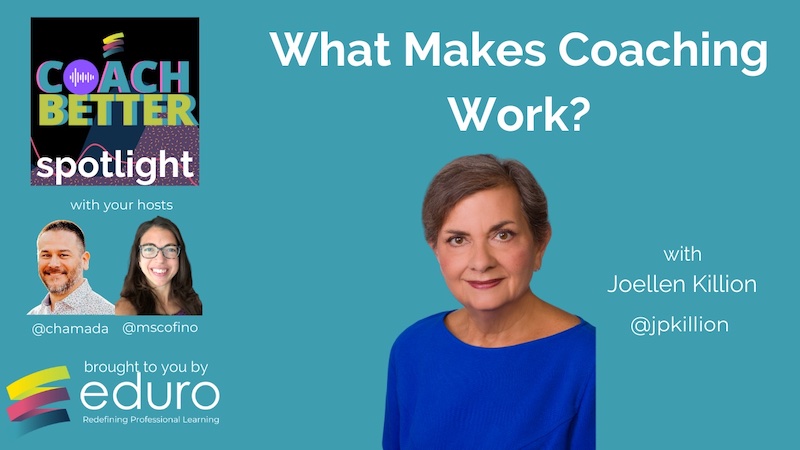
We are just providing answers and support without really digging deeper into the teacher’s professional growth. So as a warning, don’t get stuck here. Of course, you’re going to transition between all of these roles in all of your conversations, but you don’t want to get stuck in the consultant role.
2: Collaborator
This is when you, as the coach are working in partnership with the teacher, there’s a 50/50 working relationship, and each of you are doing 50% of the work in this process. Maybe this will be something that is a longer term project, something that you’re going to build it together. It’s a great starting point for deeper conversations, and it’s also a great buy-in for teams. If you go into a team meeting and you come in as a collaborator to work 50/50 on whatever they’re building, that’s a great way for them to understand the value that you bring to that team.
When you’re working as a collaborator, it’s not a hundred percent you consulting, giving everything, but you’re still using that confident, approachable voice and changing your pronoun to we. Some things you might say are:
- let’s think about, or
- how might we…
to help foster that feeling of being on a team.
Just like the consultant piece, it’s really important to keep in mind that you don’t want to take over. You want to make sure that this collaboration is really equal sharing between you and the teacher or you and the team.
It can be really easy to slip into consulting from collaboration. So make sure you’re considering the level of input that both of you (you and the teacher) have in this process.
What’s YOUR level of coaching mastery?
All coaches go through various stages of coaching mastery. Once you identify where you’re at, you can begin to build the skills needed to move to the next stage.
This quiz is based on real-life case studies compiled from years of working with coaches inside The Coach Certificate & Mentorship Program!
When you receive your results, you’ll also get your matching case study from the STRIVE Case Studies to see where you fit in the stages of coaching mastery.
Ready to tackle your challenges and move on to the next level in YOUR coaching practice?

The STRIVE Model of Coaching Mastery quiz will help you identify your level of coaching mastery by matching you with case studies compiled from years of working with coaches inside The Coach Certificate & Mentorship Program so you can easily see where you fit!
When you complete the quiz, you’ll get:
- Your matching case study,
- Specific strengths & challenges aligned to your result;
- Suggested next steps for each stage;
Plus the Case Study Document includes:
- Case studies leveled by coaching mastery;
- A framework to identify essential stages of professional growth & key areas to focus on in your professional learning;
- Alignment with the THRIVE Model for a Successful Coaching Culture;
- Space for you to reflect & prioritize so you can take action immediately!
You’ll go straight to the Quiz, and get the Case Study Document via email.
3: Coaching
Of course, the word coach is in our job title, so that makes this third stance kind of confusing – aren’t we doing this all the time? Short answer: no.
Coaching is facilitating deeper, reflective conversations with teachers, where we primarily are asking questions and being a thought partner, mirror or sounding board for teachers. This is when teachers have the answer within them, or they have something to draw upon so they can build their own constructive thinking about whatever they’re struggling with and you are helping them talk through that process.
The goal is for you to support their thinking process. You’re developing the internal resources for self-coaching and independence. This kind of conversation takes time. It goes deep and need space for reflection. So you want to be thoughtful and careful about when you use coaching.
When you’re having a coaching conversation, you want to use an approachable voice and try to focus on the pronoun you. Saying things like:
- in your experience ,or
- what might be some ways to, or
- when you’ve done something like this similar in the past, or
- what’s your first thought,
with the goal of bringing the other person into the focus of the conversation.
It’s important to note that, although this is the area that as coaches, we’re often striving for, it’s not always fun for busy teachers who might not be ready for our coaching conversation. For reference, listen to this #coachbetter podcast episode with classroom teacher, Reid Wilson, where he talks about the frustration of just needing a consultant, but the coach really wanting to play the coach in that moment and not understanding the difference between I” have five minutes for this conversation and my kids are coming down the hallway right now”, or “this is something I really want to grow into as a professional, let’s sit down and really talk about it”. That’s a really good perspective reminder for us as coaches, that what we value in the moment might not be what that teacher is valuing in the moment – it’s important for us to be responsive to them.
Learn to Navigate All 3 Stances
We work with all of these stances inside The Coach Certificate and Mentorship Program. Not only is there an entire module on learning how to support teachers in each of these three stances – and how to transition between them, but you also have the opportunity to be coached (by me and Diana!) to see how they work (and feel) in practice!
Watch the Video
Level Up Your Coaching with The Coach!
If you are ready to develop your coaching practice over the next academic year, and explore topics like transitioning your work from individuals to teams, please join us for our next cohort of The Coach!
Wherever you are in building a coaching culture in your school, The Coach will give you the strategies, skills and tools you need to make coaching a success and will empower you to confidently apply instructional coaching strategies in any situation – from building a coaching program, to having coaching conversations, to being a leader in your school community. We facilitate only one cohort each academic year so we can offer individualized support for each participant.
Registration for our next global cohort opens once a year – check the website for details!
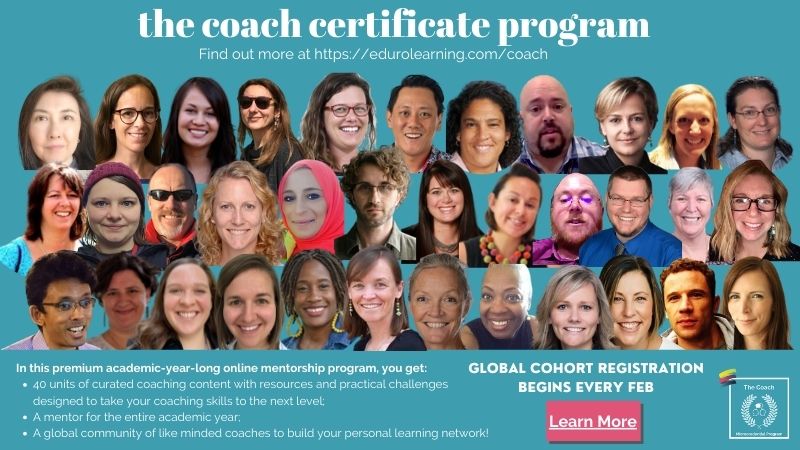
Find out more at: https://edurolearning.com/coach/
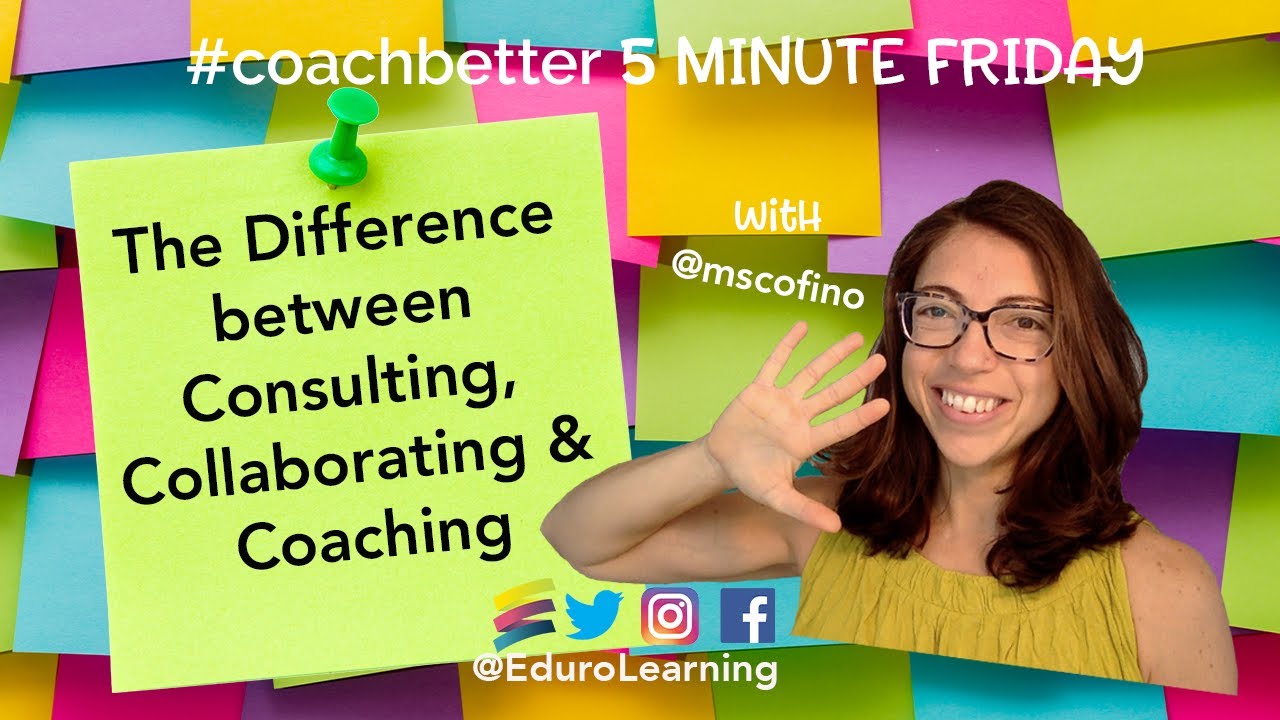
Recent Comments